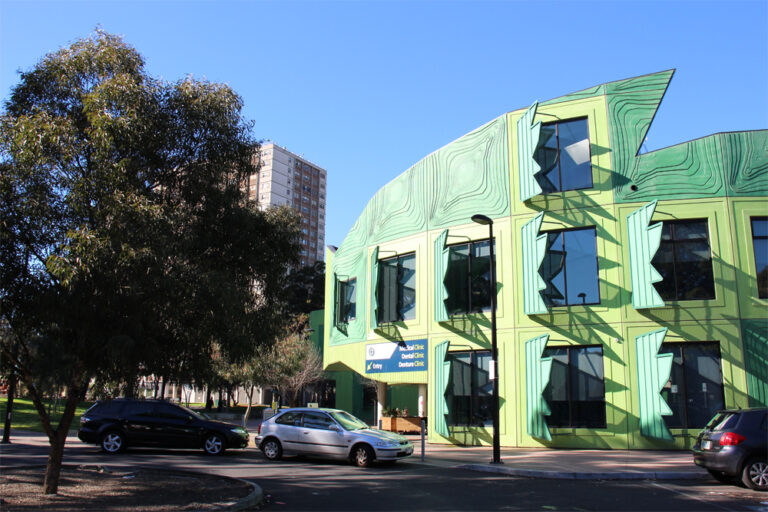18th of April 2024, 12:10
Legislative Council of Victoria Regional Sitting, Echuca
David ETTERSHANK (Western Metropolitan):
My question is to the Minister for Disability Minister Blandthorn, and it relates to Deputy Premier Carroll’s recent announcement that the office of the disability commissioner will be abolished because the role is:
… very small and is no longer viable as a standalone entity.
The commissioner is responsible for the oversight of 173,000 Victorian NDIS participants, some 68,000 disability service providers and up to 100,000 workers. Despite this, the government has undertaken no consultation with any of the many stakeholders. The commission is essential to ensuring the safety of participants and workers employed within this largely unregulated sector. Indeed disability advocates have called for the role of a specialist commissioner to be both fully funded and expanded. Can the minister explain why participants, families, advocates and the union were not consulted on this reform, particularly as the proposed changes expressly contravene the recommendations of the disability royal commission and the NDIS review?
Lizzie BLANDTHORN (Minister for Disability):
Can I first, at the outset, thank Mr Ettershank for his question and certainly for his ongoing and passionate advocacy for vulnerable people and ensuring that we have accountable and transparent systems which provide services for our vulnerable people across my portfolio responsibilities whatever circumstances in which that might be. I thank him for his advocacy, but I do think Mr Ettershank’s question epitomises the rationale for the very reform that is currently proposed.
It is a reference to a bill that the Deputy Premier Minister Carroll has introduced in the Assembly as my representative, but there is absolutely a misunderstanding regarding the role of the disability services commissioner, which relates specifically to non-NDIS services, and the Victorian Disability Worker Commission and the Disability Worker Registration Board. That misunderstanding in itself is exactly the challenge that people with disabilities face every day. We do need to address it, and we as a government do not shy away from that.
There is currently – as I was very pleased to discuss with Leah Taaffe last night – a very disaggregated and siloed approach to regulation and oversight in the disability sector. One of the things that became really apparent to me when I first took on this portfolio was that there really does need to be a one-stop approach to social services regulation, which is what we are attempting to achieve, and certainly to the complaints and oversight functions of that, including for those with disability in Victoria, because those with disabilities face many other issues as well as dealing with and living with their disability. They are complex issues; they are intersectional issues.
To be clear, the scope of the disability services commissioner has reduced since the transfer of services to the national disability insurance scheme. The office of the disability services commissioner is now a very small operation, and it is not viable as a standalone regulatory entity. We are not proposing to in any way diminish the functions of that role; indeed we are seeking to strengthen them by merging the functions. Merging the functions provides a very important opportunity to ensure that the disability services commissioner role intersects better with those of broader social services regulation.
This change also provides the opportunity to make the system simpler for people with disability and for the organisations that represent them to navigate. The system can be confusing for service users as there are multiple avenues for raising complaints about disability services let alone when their issues intersect with other service issues. What happens is people fall through the gaps, and that is exactly what we are seeking to address here. The changes reduce the number of separate entities overseeing disability service providers, preventing complaints falling between the cracks. It is not at odds with the recommendations of the disability royal commission; indeed it presents an opportunity in which to consider those more broadly.
David ETTERSHANK (Western Metropolitan):
I thank the minister for her response. By way of a supplementary question, the disability sector is arguably one of the most important and complex sectors within the health and caring industries, and I do not think we are looking for a one-stop shop that can purport to cover the complexity of not only that but also a broader range of service areas. So can the minister please explain how abolishing a specialist service and a reporting mechanism for the disability sector will actually provide better outcomes for participants, their families and disability workers if there is no dedicated disability commissioner to whom they can report poor conduct within the sector?
Lizzie BLANDTHORN (Minister for Disability):
I am very pleased to say that we agree with Mr Ettershank in relation to the complexity of issues that people with disabilities face, and we think that merging the functions of the disability services commissioner and, as we have foreshadowed, later the Disability Worker Registration Board will ensure that we can have a response and a complaints mechanism that ensures that issues which are intersectional can be dealt with in a much more holistic way.
In relation specifically to the disability worker commission and the registration board, their proposed merger into the social services regulator is appropriate, but it is important to consider that currently, as at their 2022–23 annual report, there were 63 complaints received but there was only one prohibition order made. If we are to look at the number of people that potentially fall through the gaps with the system as it is at the moment and look at the proposal on the table and that which we have foreshadowed for a future bill, what we are seeking to do is provide a holistic response that addresses the issues that people with disability might face in a holistic way, not in a siloed way – that we ensure that people with disability are heard. (Time expired)





